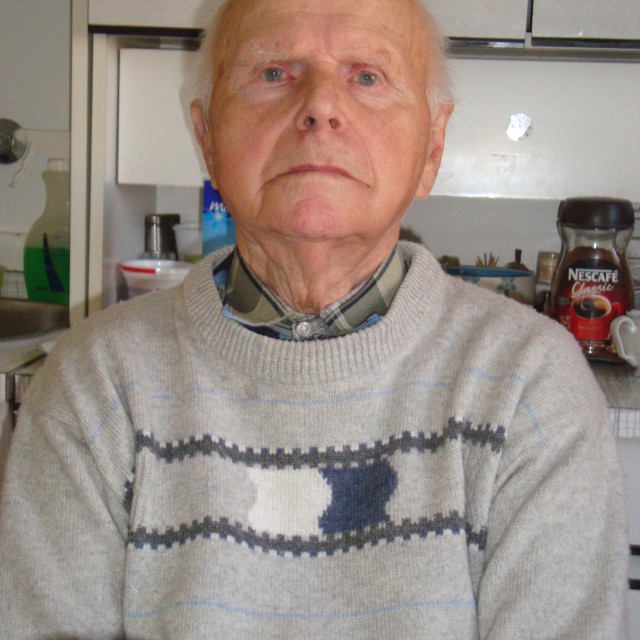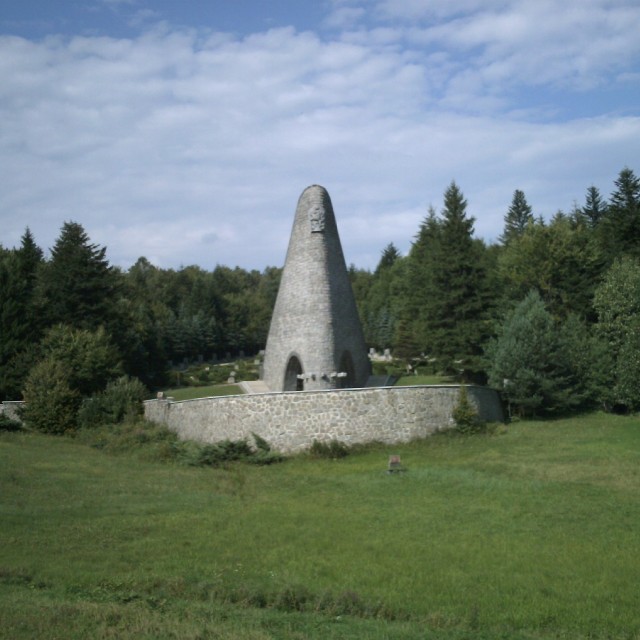I Was Unable to Scream
Among the soldiers participating in the fights of the Carpathian-Dukla operation was also a Volhynian Czech, sapper Josef Holec. After a number of bloody battles the soldiers had gone through, they were all excited to cross the borders of the former Czechoslovakia. “Our reconnaissance unit crossed the border on October 6 and we all followed them later that day. We reached the first Slovakian village. There was a large mine field, so our guys had to clear that area. Then, they redeployed us to Vyšný Komárnik.” On November 17, 1944 a mine exploded right next to Holec. “A shrapnel got stuck in my head and the entire left side of my body was left paralyzed, including my tongue, everything. I could not say anything, I was unable to scream; everything somehow stopped. The guys stretchered me to a barn in Vyšný Komárnik which was the first aid station. A receiving nurse, also a member of the army, gave me an injection, probably against tetanus and she bandaged my wounds. Since I was not talking, she assumed that I was deafened and told my friends: ‘This one is finished too.’ But I heard it…” Josef Holec was transported together with other wounded soldiers back to Poland. “I was in the car with several other soldiers; they were all crying, moaning or screaming and I was silent. The chief surgeon, staff captain Škvařil, got out of the car and started to examine the wounded. I was completely oblivious, but he chose me to be the first one to go. They took to me to the operating room, a barber shaved my head and they started to operate.”
Hodnocení
Hodnotilo 0 lidí
Routes
Not a part of any route.
Comments
No comments yet.






